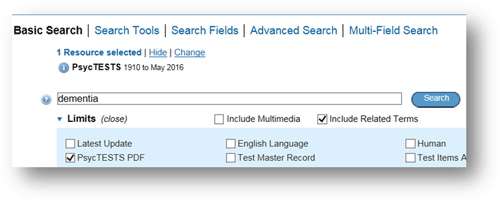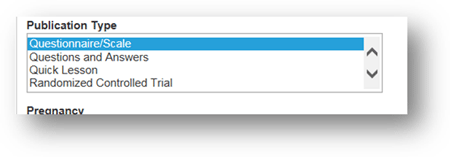Health sciences resources
Introduction to health and medical resources
This guide provides an introduction to specialised resources in health, psychology and medicine subscribed to by Curtin Library.
Acland’s Video Atlas of Human Anatomy
Acland’s Video Atlas of Human Anatomy contains over 300 videos for anatomy education featuring real cadaver specimens. It shows a 3D view of organs and specimens with labeled structures and provides an understanding of the mechanics of body movement. Acland’s includes self-assessment and practical exam preparation with interactive Q&A review quizzes.
It is intended for use by medical, dental, nursing, physiotherapy and occupational therapy students.
An@tomedia
An@tomedia is an anatomy database which provides a comprehensive, self-paced learning program. It covers nine modules for various parts of the body such as General Anatomy, Head, Neck and Upper Limb. It is presented from four perspectives which teach the user how the body is constructed (regions and systems) and how you can deconstruct the body (with dissection and imaging techniques).
Medical imaging
Medical imaging in video covers key topics in patient diagnosis and treatment. It focuses on radiography & sonography, radiation therapy, equipment, and patient communication.
Thieme MedOne Education
Thieme MedOne Education is an online collection of illustrated, full-colour textbooks for medicine and life sciences. Topics include anatomy, dentistry, dermatology, internal medicine, neurology, neurosurgery, ophthalmology, orthopedics and traumatology, otolaryngology and radiology.
What is the DSM?
The Diagnostic and Statistical Manual of Mental Disorders (DSM-5) is a standard classification of mental disorders published by the American Psychiatric Association. It is designed for mental health and other health professionals and is used for diagnostic and research purposes. The DSM has information about each mental disorder including features and criteria used to diagnose that disorder.
The Psychiatry Online database provides access to the DSM-5, DSM-5 Handbook of Differential Diagnosis and DSM Cases as well as psychiatry textbooks and journals.
What is the ICD?
The International Statistical Classification of Diseases and other Health Related Problems (ICD) is an international standard for reporting diseases and health conditions, published by the World Health Organization. It defines diseases, disorders, injuries and other health related conditions.
What is a drug formulary?
A drug formulary is a list of prescription drugs, both generic and brand name, used by practitioners when prescribing and administering medicines.
Australian Medicines handbook (AMH)
Australian Medicines Handbook (AMH) provides a concise, up-to-date source of independent drug information to facilitate effective, rational, safe and economical prescribing and dispensing.
The AMH Children’s Dosing Companion provides information for prescribing and administering medicines to children from birth to 18 years.
MIMS Online
MIMS Online contains both abbreviated and full prescribing information, consumer medicine information and product images for pharmaceuticals available in Australia.
Martindale: The complete drug reference
Martindale: the Complete Drug Reference is a comprehensive reference resource on drugs and medicines used throughout the world. Coverage includes: drug monographs, proprietary preparations, manufacturers and disease treatment reviews.
Pharmacopoeias
“A pharmacopoeia is a legally binding collection of standards and quality specifications for medicines used in a country or region. Within the pharmacopoeia, a quality specification is a set of appropriate tests that will confirm the identity and purity of the product, ascertain the strength (or amount) of the active substance and, when needed, the performance characteristics”. World Health Organization. (2013). The International Pharmacopoeia. WHO Drug Information, 27 (2), 119-128.
MedicinesComplete
Complementary and integrative medicine
Complementary and integrative medicine should be considered alongside drug interventions in terms of their efficacy, but also their interactions and toxicities.
View Natural Medicines when searching for information related to complementary, alternative and integrative medicine.
What are point-of-care tools?
Point-of-care tools are evidence-based clinical decision support resources that allow quick retrieval of information on diagnosis and treatment for immediate action at the point of patient care. These resources synthesise and evaluate relevant evidence from the clinical literature and provide detailed summaries on a wide range of conditions and interventions.
UpToDate
UpToDate is an evidence-based, physician-authored clinical decision support database which assists clinicians in making appropriate point-of-care decisions. Current health and medical information is synthesized into evidence based recommendations to improve the quality of patient care.
eTG Complete (Therapeutic guidelines)
Therapeutic Guidelines is an Australian evidence-based resource which recommends pharmacological and non-pharmacological therapies for common disorders seen in clinical practice. eTG covers the following areas of therapy: analgesic, antibiotic, cardiovascular, dermatology, endocrinology, gastrointestinal, neurology, oral & dental, palliative care, psychotropic, respiratory, rheumatology and toxicology & wilderness.
What are psychological tests?
Psychological tests are standardised written, visual or verbal tests that can be given to both children and adults to assess their cognitive and emotional status. They may be used to evaluate achievement and ability, behaviour, intelligence, intellectual development, personality and neuropsychological functioning.
Please note: Due to copyright and usage restrictions, Curtin Library does not hold copies of published tests. However, there are test collections available to eligible students - check with the School reception/Business Manager.
PsycTESTS
PsycTESTS (Ovid) is focused on a collection of instrumentation tools developed for research but not made commercially available (unpublished tests). It provides access to psychological tests, measures, scales, surveys, and other assessments as well as descriptive information about the test and its development and administration.
Many of the records include the actual test instrument.
Searching for tests:
When you know the details of a test, you can search by test title (e.g. Quality of Life Questionnaire for Dementia) or acronym (e.g. QOL-D). If you do not know the name or details of a particular test, you can search by keyword (e.g. dementia).
Searching for test tools:
To limit to records which include the actual test or measure, enter your terms in the search box, tick PsycTESTS PDF option ** under Limits, then click **Search.

PsycTESTS includes a Permissions field in the test record. This provides information about permissions for use of the test, how the test may be used and, if applicable, whether or not the publisher or author needs to be contacted before the test can be used. Some tools may also require you to pay a fee for use.

Searching databases for psychological tests
Information about the development, application/use, validity and reliability of measurement tools, tests, surveys, questionnaires and rating instruments can be found in journal articles. Articles and theses may also include the test itself (unpublished tests).
Searching databases
Some databases (such as PsycINFO, CINAHL and ERIC) provide specific searching limits to help with searching for testing tools. In other databases you can combine your topic with the following search terms to identify relevant articles:
- Instrument, Inventory, Measure*, Psychological Tests, Questionnaire, Rating Scale, Scales, Survey, Test, Tool
For example:
anxiety
AND
test OR inventory OR questionnaire OR rating scale OR measure
PsycINFO (Ovid) is a database of psychology literature which includes journal articles, dissertations, reports, book chapters and books.
Searching PsycINFO for information about tests:
PsycINFO has a Tests & Measures field which you can use to limit your search.
- In Basic Search, enter your topic or the name of the test into the search box and click Search. Then select Additional Limits, tick Tests & Measures and click on Limit a Search.
- In the Multi-Field Search, enter your topic or the name of the test then select Tests & Measures from the drop down menu.
Searching PsycINFO for test tools:
- To limit to articles which may include the actual test or measure, add append* to your search:

CINAHL Plus with Full Text provides access to nursing and allied health literature.
Searching for information about tests:
- When you know the details of a test, enter the test title in the search box then select IN Instrumentation from the Select a Field drop down menu and click Search.

- If you do not know the name or details of a particular test, you can search by keyword (e.g. depression) and combine with terms such as Instrument, Measure*, Psychological Tests, Questionnaire, Scale, Tests, Survey etc.
Searching for test tools:
- To limit to articles which may include the actual test tool, enter your terms in the search box, then select the Questionnaire/Scale Publication Type limit under Search options and click Search.

ERIC provides access to educational literature including journal articles, dissertations, reports, book chapters and books.
Searching ERIC for information about tests:
ERIC has a Tests/questionnaires field which you can use to limit your search.
- In Advanced Search, enter your topic or the name of the test in the search box, tick Tests/questionnaires in the Document type box under More search options, then click Search.
Theses and dissertations are another source of information about testing tools. Students may refer to, or develop their own, tests in the course of their research.
-
espace
Curtin’s institutional research repository, is an open access digital collection containing the research output of Curtin staff and students.
Curtin’s institutional repository contains the research output of Curtin staff and students. This includes Master’s and PhD theses some of which discuss, or include, testing tools.
-
ProQuest Dissertations & Theses
ProQuest Dissertations & Theses database provides access to doctoral dissertations and master’s theses primarily from the US and UK.
Searching for information about tests:
- When you know the details of a test, you can search by test title (e.g. Weschler Intelligence Scale for Children) or acronym (e.g. WISC-II).
- If you do not know the name or details of a particular test, you can search by keyword (e.g. intelligence) and combine with terms such as Instrument, Measurement, Psychological Tests, Questionnaire, Scale, Tests, Survey etc. For example: Intelligence AND scale OR measure* OR test OR inventory
Searching for test tools
- To limit to theses which may include the actual tool, enter your keywords in the search box, and add append* to the search e.g. depression scale AND append*
Discussions of the application of tests can be tracked through citation databases such as Scopus and Web of Science.
Searching for information about a test
- You can search by the test title (e.g. Becks depression inventory) to find articles which have referred to it.
- For unpublished tests, you can search by the title of the article the test originally appeared in (e.g. An inventory for measuring depression). If you then click on the title of the article, it will provide you with a list of articles which have subsequently referred to the test.
Medilectures
A series of online video modules that feature simulated clinical scenarios with practising clinicians. Coverage includes clinical communication, the consultation, history taking, the physical examination and relationship building with patients.
Nursing education in video
An online collection of videos created specifically for the education and training of nurses, nursing assistants, and other healthcare workers. The collection allows students and practitioners to see, experience, and study nursing techniques and theories.
Counseling and therapy in video
Counseling and therapy in video provides access to videos of counseling sessions and demonstrations, consultations, lectures and presentations for social work, psychotherapy, psychology and psychiatric counseling.
Owl Talks
An online video database providing recordings of lectures related to psychological health and medicine and lectures related to psychosexual health and medicine.
Medical imaging in video
Medical imaging in video covers key topics in patient diagnosis and treatment. It focuses on radiography & sonography, radiation therapy, equipment, and patient communication.